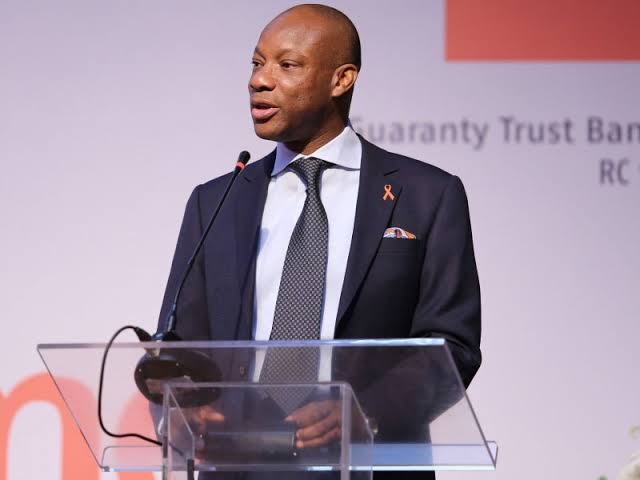GTBank’s CEO Segun Agbaje Prepares to Bow Out
Leaving the Bank in a position many described as envious, Segun Agbaje has proved his mettle as he prepares to bow out as chief executive officer (CEO) of Guaranty Trust Bank and its ancillary holding companies. Looking back at some of the outstanding impacts of his leadership, one couldn’t help but point to the major role he played in putting together Guaranty Trust Bank’s landmark US$350million Eurobond offering in 2006 and later in the same year, the listing of its US$750 million Global Depository Receipts (GDR) in an unprecedented concurrent global offering in the domestic and international capital markets – which made Guaranty Trust Bank the first Nigerian company and first African bank to be listed on the Main Market of the London Stock Exchange.

But it has not always been like this. When fate trust the leadership of the Bank on his after the death of co-founder Tayo Adenirokun, Mr. Agbaje came under severe criticisms and the Bank also lost a lot of positive perception mileage as many worried whether he could step into the big shoe left by Tayo as he was fondly called by members of staff. Shortly after becoming CEO, he led the bank to launch the first Sub-Saharan Africa financial sector benchmark Eurobond when the Bank launched its US$500million Eurobond without a sovereign guarantee or credit enhancement from any international financial institution.
Read also:Nigerian Female Ex-Banker Defies Central Bank Stance To Raise $1m For Her Crypto Startup
Agbaje no doubt possesses a deep sense of loyalty and is driven by values of hard work, integrity, and discipline. He is probably one of few banking executives who stayed with one bank for thirty years, attaining the peak of his career there. This is not because of a lack of better options, but because of Agbaje’s commitment to the bank he had seen and groomed from its infancy days. He also helped in developing the Interbank Derivatives market amongst dealers in the Nigerian banking industry and introduced the Balance Sheet Management Efficiency System.
His deep understanding of the Nigerian business environment has seen him initiate and execute large, innovative and complex transactions in financial advisory, structured and project finance, balance sheet restructuring and debt and equity capital raising in different sectors like Oil and Gas, Energy, Telecommunications, Financial Services and Manufacturing industries.
Read also;Why South African Businesses Adopted Hybrid Cloud at Increasing Rate In 2020
According to Agbaje’s recount, the several responsibilities he handled in the bank over the years exposed him to the international financial markets and the people who worked in them – merchant banks, investment bankers, lawyers, and investors. It also gave him a deeper understanding of what people wanted from a first-class bank.
Under his leadership, GT Bank Plc won several awards including Best Bank in Nigeria by Euromoney; African Bank of the Year by African Banker Award; Best Bank in Nigeria by World Finance UK; Most Innovative Bank by EMEA Finance; Best Banking Group by World Business Leader Magazine and Best Bank in Nigeria award by the Banker Awards; Best Mobile Banking and Mobile Money awards, Best Digital Bank awards and, Digital Wallet of the Year award.
Ahead of the disruption in the banking sector, Agbaje gave GT Bank a headstart when he launched the Habari mobile platform in November 2018 for customers to carry out a wide range of services including “pay for tickets, book holidays, stream music, buy online, watch videos, and then, because we are a bank, we can provide the payment engine.” He predicted even then that any bank that does not transform itself into a trusted single, integrated platform will get smaller and smaller as the fintechs and telcos grow larger and take over.
Read also:South African Fintech Startup, Payflex, Secures New Funding Round
Agbaje won the African Banker of the Year award in 2012. He serves on the boards of other business concerns including Guaranty Trust Bank in Kenya, Rwanda, Uganda, Ghana and the United Kingdom. Agbaje has other commitments as well, but none of them run parallel to that of GT Bank. He is a member of the board of directors and audit committee of PepsiCo, a position he resumed on 15 July 2020. He is also a member of the Mastercard Advisory Board, Middle East and Africa.
Kelechi Deca

Kelechi Deca has over two decades of media experience, he has traveled to over 77 countries reporting on multilateral development institutions, international business, trade, travels, culture, and diplomacy. He is also a petrol head with in-depth knowledge of automobiles and the auto industry





